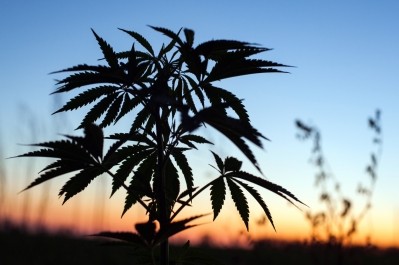FDA hardens stance against use of CBD in supplements

FDA sent warning letters to four companies marketing products containing CBD sold as dietary supplements. Two of the companies, Stanley Brothers Social Enterprises and That’s Natural Marketing and Consulting, are located in Colorado. Another, Natural Alchemist, is in California while the fourth, Green Roads Health, is based in Florida.
IND filing
CBD, or cannabidiol, is a non narcotic fraction of Cannabis sativa that has been studied for a variety of health effects, including pain management and antispasmodic effects. It was these properties that prompted English drug maker GW Pharmaceuticals to begin the process of bringing two CBD-based drugs to market—Epidiolex for childhood epilepsy and Sativex for spasms related to MS and pain experienced by patients undergoing cancer treatment.
FDA has ruled that CBD is excluded from use in dietary supplements because of the prior IND (Investigational New Drug application) filed by GW Pharmaceuticals, but that hasn’t stopped product developers from offering it for sale in a wide variety of products including beverages, foods and supplement-like delivery forms such as capsules and tinctures. There doesn’t appear to be a perceived public health risk for these products as there was for DMAA, so the agency has not instituted a broad action to remove them from the market, nor has it issued a consumer warning on the products.
Hardening attitude
Nevertheless, these most recent four warning letters seem to signal a hardening of FDA’s position on the subject. Past warning letters sent to CBD marketers typically included the following boilerplate language on the exclusionary IND question: “FDA is not aware of any evidence that would call into question its current conclusion that CBD products are excluded from the dietary supplement definition under section 201(ff)(3)(B)(ii) of the FD&C Act, but you may present the agency with any evidence that has bearing on this issue.”
But now the agency is using the following more definitive statement, which was taken from the most recent four letters:
“It is a prohibited act under section 301(ll) of the Act (21 U.S.C. 331(ll)) to introduce or deliver for introduction into interstate commerce any food to which has been added a drug for which substantial clinical investigations have been instituted and for which the existence of such investigations has been made public, unless the drug was marketed in food before any substantial clinical investigations involving the drug were instituted. The existence of substantial clinical investigations regarding CBD has been made public. Based on available evidence, FDA has concluded that section 301(ll) prohibits the introduction into interstate commerce of any food to which CBD has been added.”
The four most recent warning letters join the 21 warning letters on CBD sent in 2016 and the 18 CBD warning letters that FDA mailed in 2015. What is still common to all the warning letters, though, is the focus on impermissible disease claims. While the four companies in the 2017 warning letters were marketing products that claimed to be dietary supplements, they were all making overtly drug-like claims including statements on the products’ cancer-fighting properties, pain relief benefits and antispasmodic and antipsychotic effects. As far as can be determined, FDA has yet to send a warning letter to a company marketing a CBD-containing product positioned as a dietary supplement that is not making any sort of red-flag health claim.
Industry put on notice
But Jason Sapsin, an attorney in the firm Faegre Baker Daniells, said that those kinds of companies shouldn’t take comfort in that fact. FDA has said that CBD doesn’t belong in a dietary supplement, and that has long been the case, even though it seemed unwilling to state things as baldly as it is now doing, he said.
“I am surprised that FDA waited as long as it did to make this argument. I don’t have a good explanation for that delay, other than they may have been reluctant to engage in a fight for which they did not feel they had the support for,” Sapsin told NutraIngredients-USA.
“There are plenty of cases out there that are easy to make. In these warning letters you have the substance itself, and clearly outrageous claims that involve extremely serious diseases where the companies appear to be offering prevention or a cure. But for those other companies, FDA is putting them on notice that they should have known this for while now, and while they may have thought the agency wasn’t taking this seriously, this is in fact the agency’s position on the subject,” he said.
















